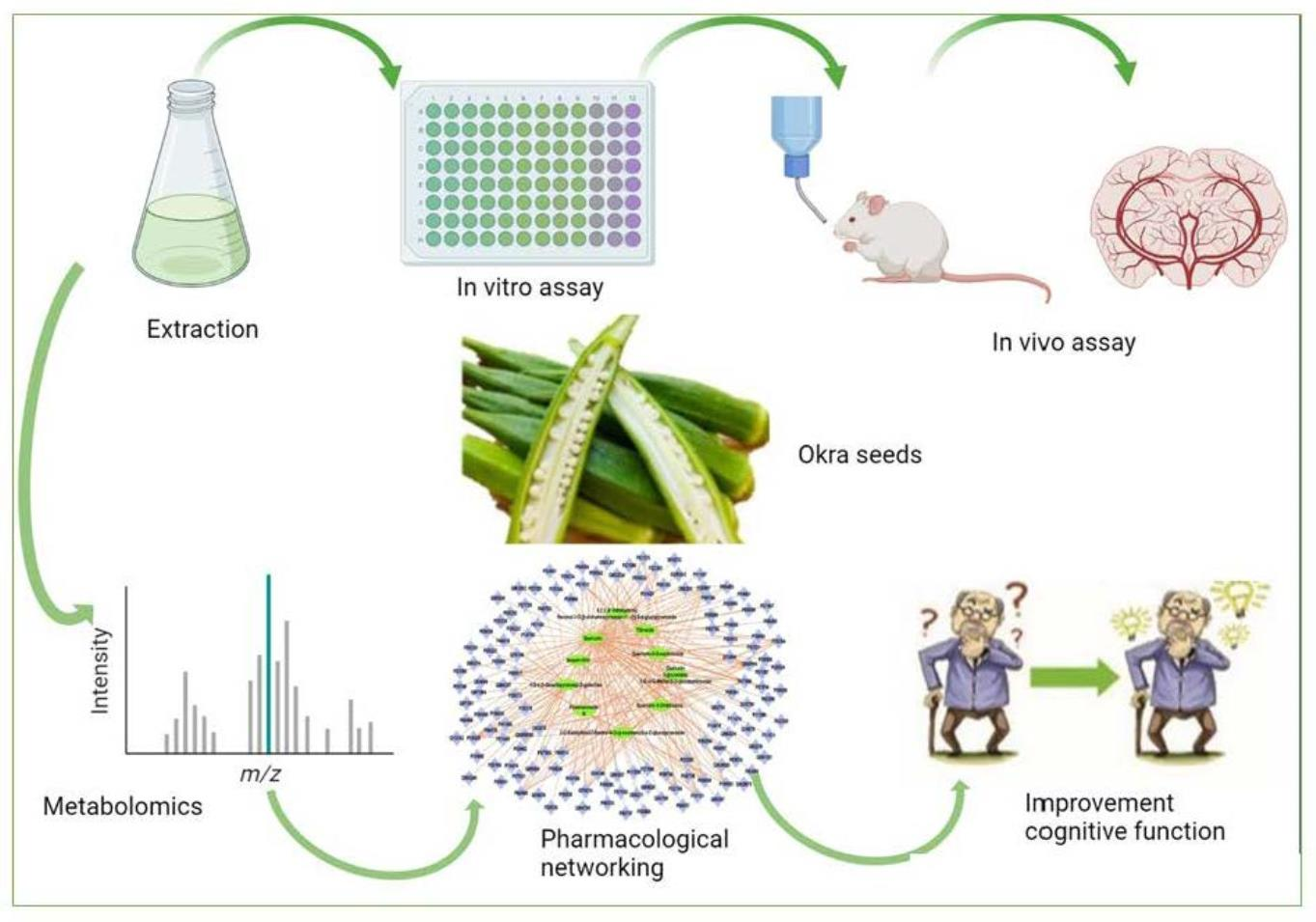A new publication by scientists from Saudi Arabia and Egypt discusses the potential therapeutic effects of Abelmoschus esculentus (okra) seed extract on Alzheimer's disease (AD).
 The study investigates the free radical scavenging and cholinesterase inhibitory activities of the extract, followed by in vivo studies to assess its anti-Alzheimer potential.
The study investigates the free radical scavenging and cholinesterase inhibitory activities of the extract, followed by in vivo studies to assess its anti-Alzheimer potential.
Indeed acetylcholinesterase inhibitors, are intended for those with mild to severe Alzheimer's. An extract of Ginkgo biloba known as EGb 761 has been used for treating Alzheimer's and other neuropsychiatric disorders.
In addition, diabetes is highly linked to the occurrence of Alzheimer's disease. In other studies, subfractions of abelmoschus esculentus have been shown to attenuate Aβ-induced insulin resistance and ameliorate the expression of p-tau and normalize the autophagy and survival of hippocampal neurons.
The results demonstrate that the okra seed extract has considerable scavenging potential for free radicals and exhibits inhibitory activity against acetylcholinesterase (AChE). In behavioral tests conducted on rats with AD, the extract improves cognitive functions and behavioral attitude compared to the AD-induced group. It also enhances neurotransmitter levels and decreases acetylcholinesterase activity in AD-induced rats.
The study finds that AD rats have increased acetylcholinesterase activity, altered levels of neurotransmitters, decreased brain-derived neurotrophic factor (BDNF), elevated levels of advanced glycation end products (AGEs), and increased interleukin-6 (IL-6). Treatment with okra seed extract improves BDNF, reduces AGEs and IL-6 levels, and restores antioxidant markers.
Histopathological examination shows Alzheimer's disease rats exhibit neuronal degeneration, neurofibrillary tangles, and other neuropathic alterations. Treatment with okra seed extract mitigates these pathological changes.
Overall, the study suggests that okra seed extract has potential therapeutic effects against Alzheimer's disease by exerting antioxidant, anti-inflammatory, and neuroprotective effects, improving cognitive functions, and modulating neurotransmitter levels.
It's unlikely that a plant remedy would cure Alzheimer's. Most of the time, academic studies do not lead to commercial drugs. In addition, mouse studies usually do not translate into clinical results, but who knows, maybe this time it will be different.
